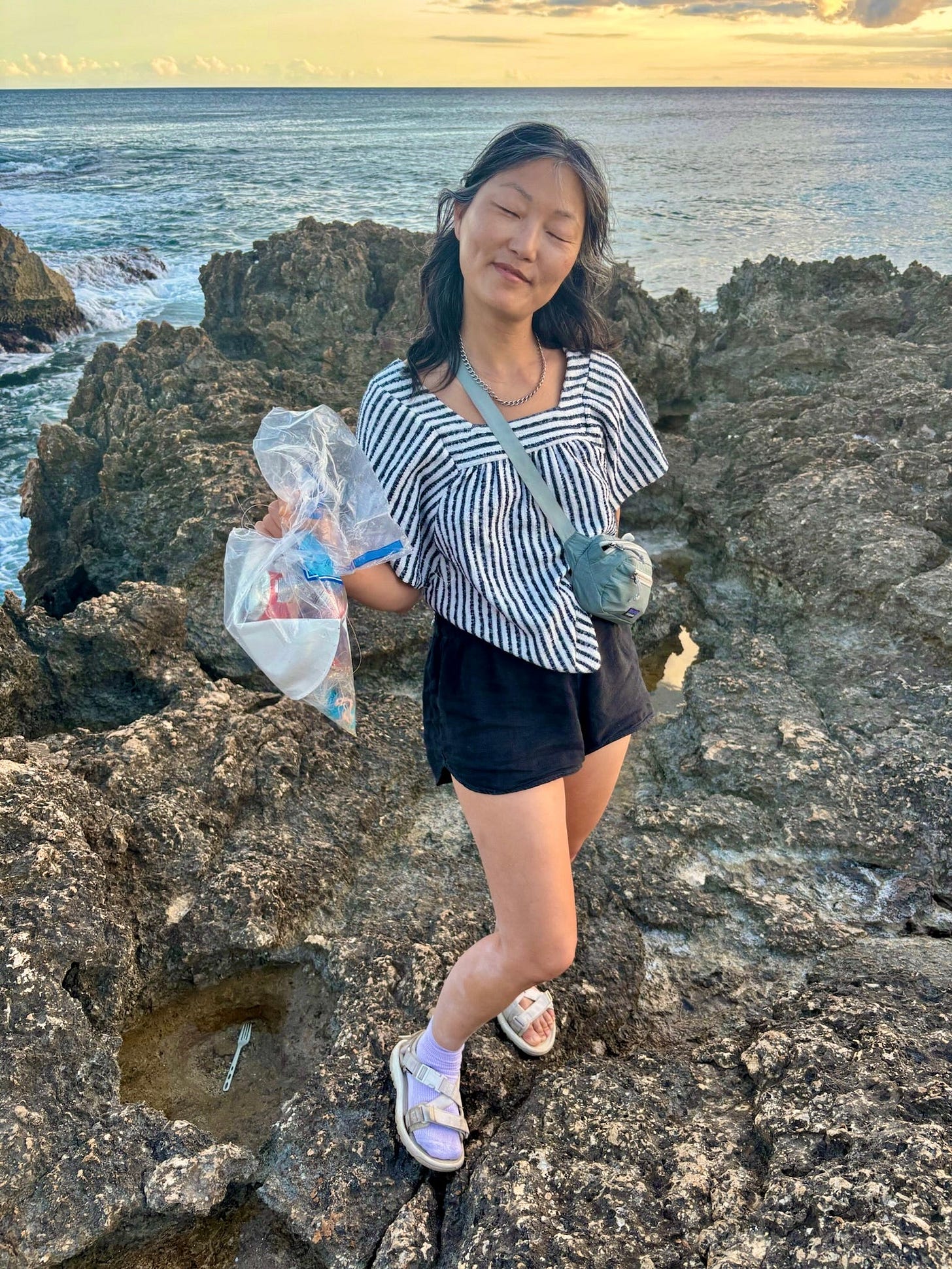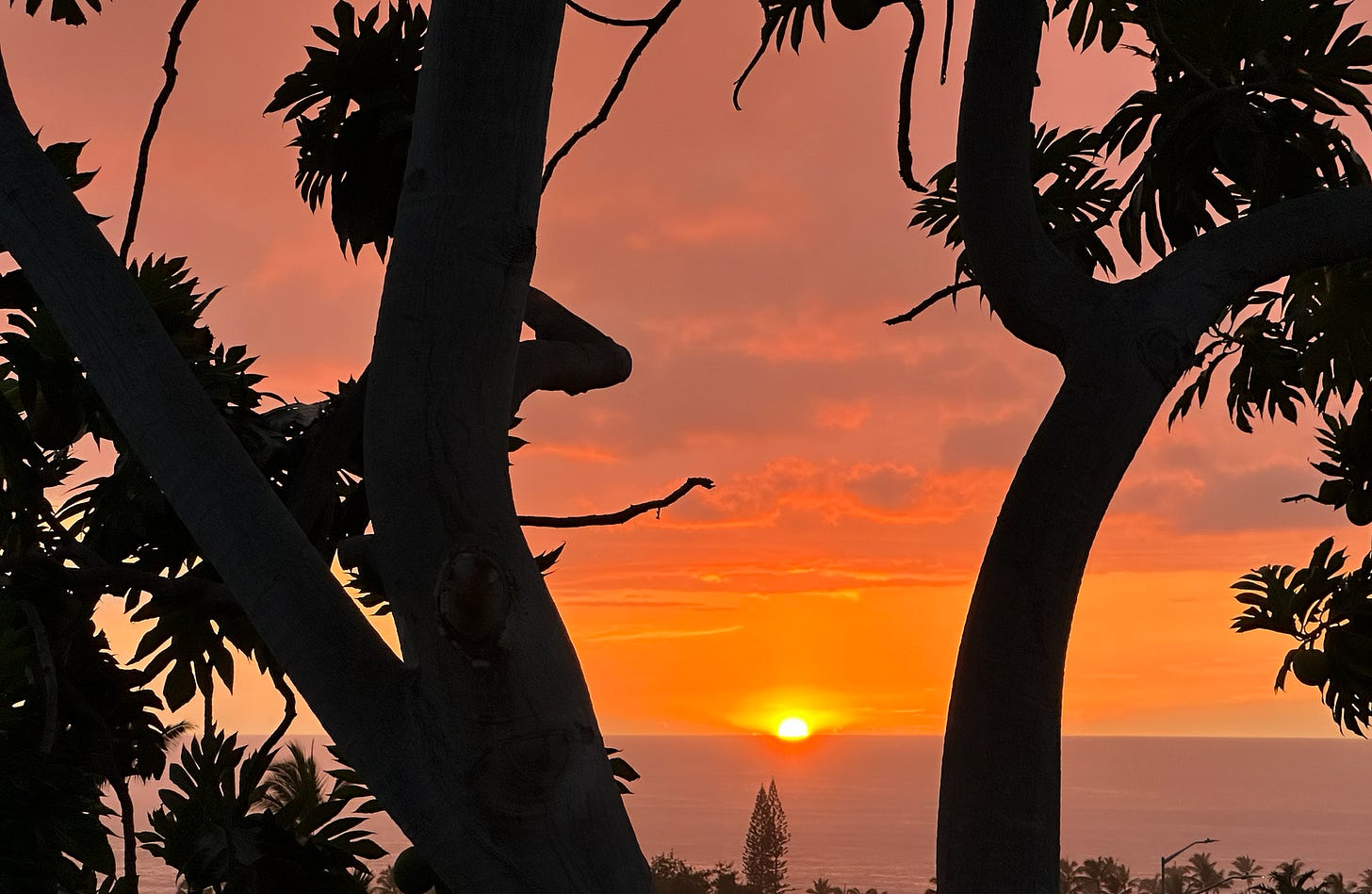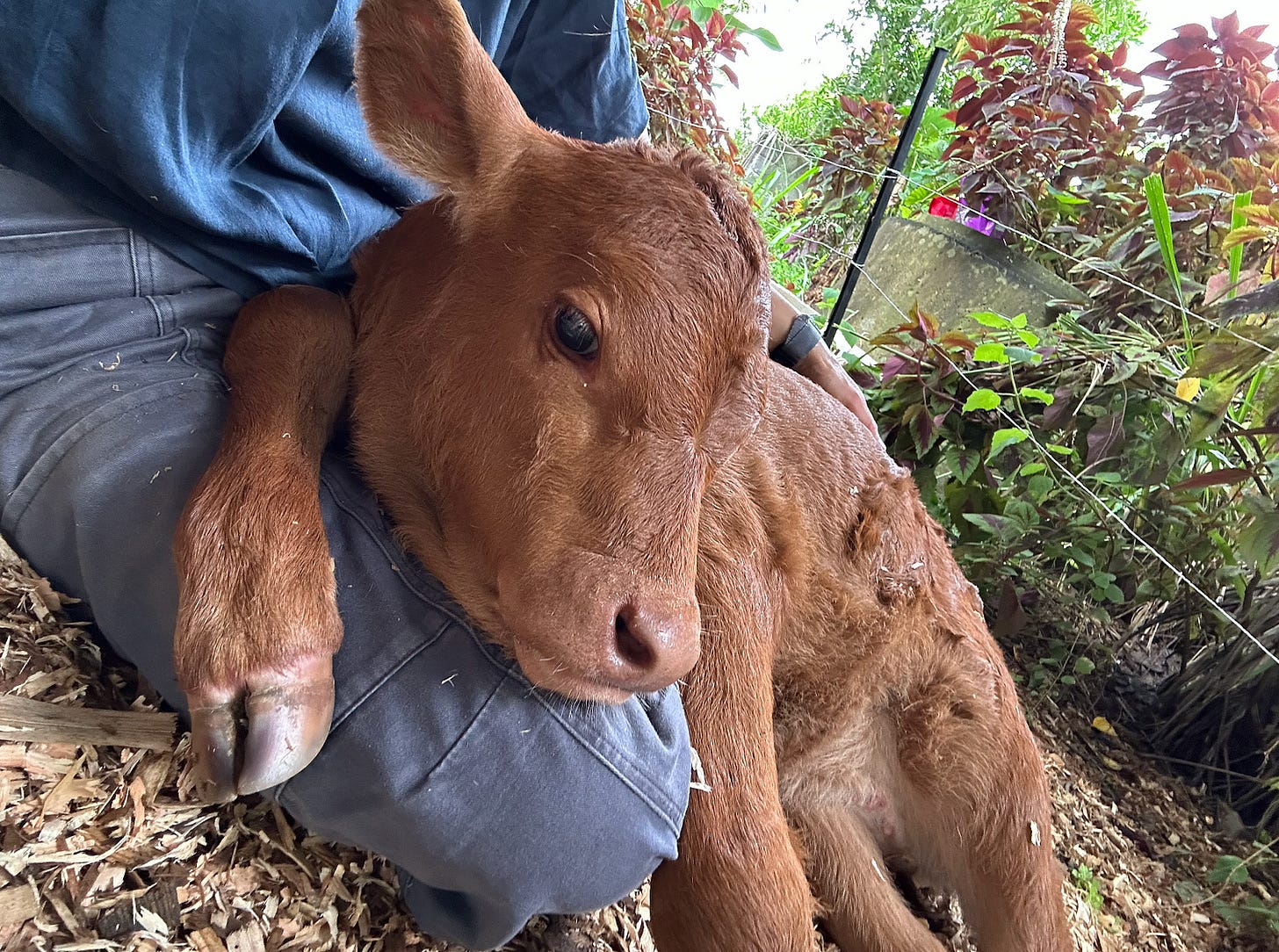Recently, I visited Hawai’i.
I’m including the okina (apostrophe) in the spelling because it’s an official consonant in the Hawaiian language that apparently changes the pronunciation and, sometimes even, the meaning of a word.
I will also heretoforth be annoying everyone by pronouncing it Ha-VAI-ee and not Ha-WHY-ee like I’ve been saying my whole life, because the ‘w’ sound changes to a ‘v’ sound when it’s in the middle of a word.
I didn’t think Hawai’i was going to be my thing.
Too much sun. Too much beach. Not enough mountain — or so I assumed. Plus the Native Hawai’ians didn’t want me there. So I put off visiting — for possibly ever.
I’d already visited once before, in the ’90s as a twenty-something. On a flight back from Bali, the flight attendants, maybe just the one, an Asian twenty something dude, learned I’d never been to Hawai’i and he decided to change that right then and there by inviting me to join the layover with him and the other (mostly women) flight attendants. The ‘free’ seeker in me couldn’t say no to that, could she?
I stayed. I galavanted. I tried Spam musubi (even though I was veggie, but I’m also Korean and grew up on Spam, so). I even surfed for the first time and actually stood up on the board! What else could I possibly need to visit Hawai’i again for?
So when a friend mentioned she was going, the memory of my previous visit felt like enough. I pretty much only travel to climbing destinations at this point, and Hawai’i wasn’t one. Or was it? Out of idle curiosity, I fired up DuckDuckGo (I’ve mostly quit Google) and did a quick search and what do you know. Hawai’i had actual mountains and there were climbing routes a plenty.
My mind was changed. So I tagged along — first to the Big Island, then O’ahu. I even swapped out French for Hawaiian on Duolingo to pick up some basic phrases: Mahalo — thank you. Wahine — woman. And of course aloha. Which, did I even need to learn? Everyone knows it means ‘hello’ and ‘goodbye’, right?
Then one day, while driving around the island, I spotted a sign that read, “Did you receive aloha today?”
That stopped me. Receive aloha? We looked it up.
Turns out aloha is an untranslatable word holding love, compassion, mercy, gratitude, peace, grief, and more — all woven together. It can also mean a force that holds existence together.
“It comprises a complex… ethic of care and respect for all people and all elements of the land; a way of showing connection and reverence.” It’s as an energy exchange — “the giving and receiving of positive energy.”
Hawai’i even has an Aloha Spirit law (1986) that requires state officials to embody it.
I felt a pang of something like disappointment. How had something so profound — from a place so geographically close to us — slipped past the American consciousness?
An entire culture built on compassion, on ensuring you received aloha? What the heck people.
It wasn’t even asking anything from me. It didn’t say, GIVE ‘aloha’, it asked if I RECEIVED it. I was entitled to this. We all were. No wonder other drivers so politely let me merge into their lane, even at the last panic-stricken minute.
And all those years ago, those flight attendants had probably just been sharing their aloha with me and I hadn’t even fully appreciated it then.
Meanwhile — Koreans have han.
Cue the groan of my existential agony. I didn’t learn about han until I moved to California at the age of 44. But when I did, it clicked. Han describes a knot of emotions — rage, sorrow, grief, resentment, shame — tempered with hope and resilience.
The minjung (or Korean people’s) theologian Suh Nam-dong described han as “a feeling of unresolved resentment against injustices suffered, a sense of helplessness because of the overwhelming odds against one, a feeling of acute pain in one’s guts and bowels, making the whole body writhe and squirm, and an obstinate urge to take revenge and to right the wrong — all these combined.”
Basically, something that twisted your insides and made you want to cut someone. I could relate to that.
I, myself, had attributed these emotions to having had an awful childhood, so it was a shock to learn that this was merely a part of my cultural inheritance.
All this time, it had just been my identity. Han was who I was. It felt validating.
The term supposedly isn’t used as much in South Korea, and is only something that’s embraced by the diaspora. Maybe like some kind of a lifeline that recognizes our generational suffering as a unifying experience.
But my visits back to Korea tell a different story.
The shame of being Korean so widespread: that scores of stores sell merch emblazoned with major cities like NYC, Los Angeles, and even Tokyo (Korea’s former colonizer), but I couldn’t find a single one with ‘Seoul’.
That Seoul is the plastic surgery and skin whitening capital of the world because South Koreans refuse to accept their inherited features and melanin-rich skin.
That technical mastery of existing practices trumps creative exploration — I looked high and low for an original Korean tattoo artist, but I couldn’t find anyone who had their own distinct style and wasn’t just replicating existing designs.
That’s not who I am.
I’m a product of too much western influence. The ‘we’ of my Korean-ness mingled with American independence.
But I found I still have space for other ways of being. I’m not a static creature.
Just because I’ve descended from bearers of han doesn’t mean I can’t embrace aloha does it? What if we all did? Could we change our community a little? Or even a lot?

But I’d want to change the phrasing a little for global consumption. There are enough entitled people who expect things without giving back. Maybe it could instead be:
Have you practiced aloha today?
And if not, will you?






Thank you for introducing me to the Aloha concept. It was new to me. I will try to practice the spirit of Aloha for the rest of the day.